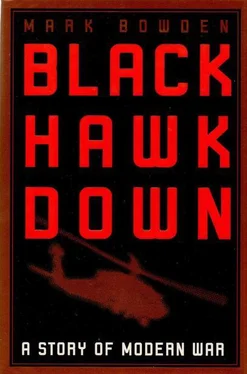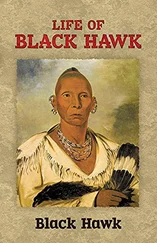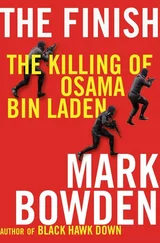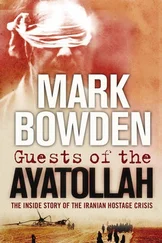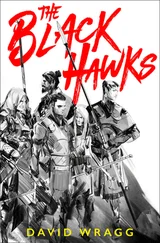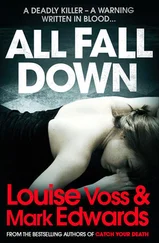Mark Bowden - Black Hawk Down
Здесь есть возможность читать онлайн «Mark Bowden - Black Hawk Down» весь текст электронной книги совершенно бесплатно (целиком полную версию без сокращений). В некоторых случаях можно слушать аудио, скачать через торрент в формате fb2 и присутствует краткое содержание. Город: New York, Год выпуска: 1999, ISBN: 1999, Издательство: Atlantic Monthly Press, Жанр: nonf_military, на английском языке. Описание произведения, (предисловие) а так же отзывы посетителей доступны на портале библиотеки ЛибКат.
- Название:Black Hawk Down
- Автор:
- Издательство:Atlantic Monthly Press
- Жанр:
- Год:1999
- Город:New York
- ISBN:978-0871137388
- Рейтинг книги:3 / 5. Голосов: 1
-
Избранное:Добавить в избранное
- Отзывы:
-
Ваша оценка:
- 60
- 1
- 2
- 3
- 4
- 5
Black Hawk Down: краткое содержание, описание и аннотация
Предлагаем к чтению аннотацию, описание, краткое содержание или предисловие (зависит от того, что написал сам автор книги «Black Hawk Down»). Если вы не нашли необходимую информацию о книге — напишите в комментариях, мы постараемся отыскать её.
Black Hawk Down — читать онлайн бесплатно полную книгу (весь текст) целиком
Ниже представлен текст книги, разбитый по страницам. Система сохранения места последней прочитанной страницы, позволяет с удобством читать онлайн бесплатно книгу «Black Hawk Down», без необходимости каждый раз заново искать на чём Вы остановились. Поставьте закладку, и сможете в любой момент перейти на страницу, на которой закончили чтение.
Интервал:
Закладка:
He watched as the D-boys lined up in the courtyard, preparing to make their dash out the door. Then the first group of four went charging out into the night. Gunfire exploded the instant they passed through the door. The whole neighborhood erupted. Within seconds, all four o fthe boys came flying back into the courtyard, tripping over the same metal doorway rim that had tripped up Steele earlier. They wound up in a heap on the ground, their gun barrels clinking together as they untangled.
Steele watched with mild amusement and satisfaction. Nobody was going anywhere.
Inside the stone house adjacent to the crash site, the men blew a hole in one of the walls and began moving the wounded and dead into the adjacent space. Through the new hole a Somalian woman in a flowing orange robe stepped in screaming words the men couldn’t understand. When she stepped out, gunfire ripped through windows and openings. Then the woman came back, screamed more, and left. Again came the rain of gunfire.
“If that bitch comes back, I’m going to kill her,” one of the D-boys grumbled.
She did, and he did.
Sgt. First Class Al Lamb helped moved CWO Donovan “Bull” Briley’s body into the newly opened space. Briley had died in the crash of Wolcott’s helicopter. When Lamb set Briley down, the copilot’s head hit the wall with a mushy thud that sickened Lamb. He flattened him out so that when rigor mortis set in the body would not be folded at the waist. Lamb remembered seeing Briley the day before, running, wearing spandex shorts, a powerful man. He thought, Jesus, this is a sad day.
IN A COURTYARD less than 50 yards away, First Lt. Larry Perino, medic Kurt Schmid and others were taking turns sticking their fingers up inside Cpl. Jamie Smith’s wound, trying to keep the severed femoral artery pinched shut. Smith had been in awful pain from a gunshot wound to his upper thigh, but a morphine drip had quieted him. He was still conscious, but barely. He looked pale and distant. Schmid kept telling Perino: “We need help. He’s not going to make it.”
Earlier in the evening, a Blackhawk had dropped fresh supplies of fluids and medicine, along with more ammunition. But Smith needed a doctor and a hospital.
Perino radioed down the block to Steele: “Hey, Captain, we’ve got to get Smith out. He’s getting worse.”
Steele knew this was doubtful, but radioed Harrell and urged him to put a helicopter down in the wide intersection outside his doorway. Harrell was not encouraging. He said the resupply helicopter had been badly shot up and had barely made it out—and it had only hovered, not landed.
Even so, Steele could hear Harrell pleading with his superiors at the Joint Operations Center at the airport base. Harrell stressed that both Smith and Pfc. Carlos Rodriguez, who had been shot in the groin, were in critical condition. He asked about the quick reaction force, which was still being assembled at the base to drive into the city and smash through to the surrounded soldiers.
Harrell was insistent:
«If the QRF [quick reaction force] does not get there soon, there will be more KIAs [killed in action] from previously received WIAs [wounded in action].”
But to no avail. Rescue convoys had failed. The other helicopter crash site, Mike Durant’s Blackhawk, had been overrun. The forces of warlord Mohamed Farrah Aidid, fully mobilized, had dug trenches and erected burning barricades on all roads leading to Wolcott’s crash site.
Word came back from Command that they were not going to try to land a helicopter but instead would wait on the armored convoy. They needed at least another hour.
Harrell reluctantly delivered the verdict to Steele:
“We are going to have to hold on the best we can with those casualties and hope the ground reaction force gets there on time.”
Steele sadly passed the word to Perino: “It’s just too hot.”
Perino took the news badly. It was one thing to weigh these matters rationally, but quite another to have a young man’s blood splashed all over your hands and arms, to have your fingers up inside his wound, feeling his life ebbing away.
They had pushed as much fluid from the resupply into Smith as they could, but he needed blood.
Perino could tell that even though Smith had become weak and silent, he was still alert enough to be very scared. His father, James Sr., had been a Ranger in Vietnam and had lost a leg in battle. He had tried, before Jamie enlisted, to instill a respectful fear of combat into his son, describing in graphic detail the horrors he had seen in Vietnam.
Jamie had grown up wanting to be nothing but a Ranger. As a boy, he had sometimes worn his father’s old Army jacket to school in Long Valley, N.J. His younger brother, Matt, was planning to enlist and enter Ranger school.
Three years earlier, when he was still in basic training, Jamie had written to his father: “Today while walking back from lunch I saw two Rangers walking through the company area. It’s the dream of being one of those guys in faded fatigues and a black beret that keeps me going.”
Now the life was flowing from him. There was nothing more Perino and Schmid could do.
Not long after the refusal of the helicopter, Perino radioed Steele: “Don’t worry about the Medivac, sir. It’s too late.”
The news was broadcast over the command net: “One of the critical WIAs has just been KIA.”
CHAPTER 25
Confusion As Rescue Convoy Rolls Out
December 10, 1997
LT. COL. BILL DAVID knew very well the consequences of delay. There were wounded Rangers out in the city who were going to die unless the rescue convoy got there soon.
But David, ground commander of the 10th Mountain Division’s Quick Reaction Force, was coping with overwhelming complications trying to put the multinational convoy together. It was late in the evening now, more than five hours into the battle.
David and the rest of Charlie Company, about 150 men on a convoy of nine flatbed trucks and a dozen humvees, had already tried to fight their way out to the city once. Before sunset they had made a bid to reach the southern crash site, where pilot Mike Durant and his crew were about to be overrun by Somalis. The convoy had made it only to K-4 Circle, more than a mile from the crash site, before being turned back by a blistering ambush.
Now he had been ordered to hastily assemble a massive rescue force from four Pakistani tanks, 28 Malaysian armored personnel carriers (APCs), his own men along with 150 men in the 10th’s Alpha Company, a platoon of eager Ranger volunteers along with the boys, and the still-ambulatory remnants of the lost convoy.
There was a chaotic scene at the New Port facility in Mogadishu, a few miles up the coast from Task Force Ranger’s base. The Rangers and the boys were in a desperate hurry to get going, and they didn’t hide their frustration. But assembling this patchwork convoy presented a host of problems.
It meant looking for drivers who could manage the five-ton trucks while wearing Night Optical Devices (NODs). Company armorer Spec. Peter Squeglia had some experience riding a motorcycle wearing NODs, so one of the lieutenants asked him to drive a truck.
“Sir, if you’re telling me to drive it, I’ll drive it. But I’ve never driven a truck before,” Squeglia said.
He was terrified by the thought of grinding gears in the middle of a convoy, where one stalled vehicle could hold up an entire force or, worse, get left behind.
The lieutenant made a face, and walked off to find someone else. Squeglia felt deflated and guilty. Everybody was scared. Some guys were racing to the front of the column while others were looking for a way to avoid going out. Squeglia was somewhere in the middle. After what he had seen of the lost convoy, part of him felt that going out into that city was committing suicide. But they had to do it. He thought about his parents at home on a Sunday morning, reading the newspaper, without the slightest idea that, at this very moment, he was probably living the last minutes of his life.
Читать дальшеИнтервал:
Закладка:
Похожие книги на «Black Hawk Down»
Представляем Вашему вниманию похожие книги на «Black Hawk Down» списком для выбора. Мы отобрали схожую по названию и смыслу литературу в надежде предоставить читателям больше вариантов отыскать новые, интересные, ещё непрочитанные произведения.
Обсуждение, отзывы о книге «Black Hawk Down» и просто собственные мнения читателей. Оставьте ваши комментарии, напишите, что Вы думаете о произведении, его смысле или главных героях. Укажите что конкретно понравилось, а что нет, и почему Вы так считаете.
